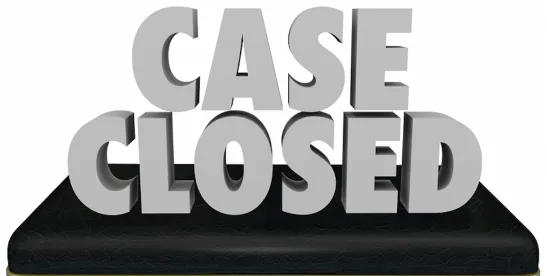Four and a half years ago, I argued that the SEC should "fold 'em" on its litigation against Ripple Labs, comparing the agency's position to a losing hand in Kenny Rogers' "The Gambler." Last week's joint stipulation dismissing both the SEC's appeal and Ripple's cross-appeal, combined with the SEC's unprecedented waiver of Ripple's "bad actor" disqualification under Regulation D, finally brings this misguided enforcement action to its inevitable conclusion.
The resolution vindicates every criticism I leveled, over multiple opinion pieces in these pages, at the SEC's approach throughout this litigation. More importantly, it represents a complete capitulation by an agency that spent years pursuing what I called "enforcement by destruction.”
Predictions Vindicated
When I first wrote about this case in May 2021, the SEC's enforcement-first approach was already showing cracks. I predicted the agency would ultimately lose on the merits, that its internal deliberations would prove embarrassing when disclosed, and that the real victims would be XRP holders harmed by the SEC's actions rather than any conduct by Ripple.
Every one of these predictions came true.
Judge Analisa Torres' July 2023 ruling found that only a narrow set of institutional sales constituted unregistered securities offerings, dismissing the vast majority of the SEC's claims. The discovery process revealed eight years of regulatory uncertainty that left market participants "completely in the dark" about the SEC's position. And XRP holders — the very investors the SEC claimed to protect — suffered massive losses when the agency filed its complaint, leading them to intervene in the case against the SEC.
My April 2024 piece describing the SEC's strategy as "regulation by destruction" proved equally prescient. The agency's demand for nearly $2 billion in penalties for a non-fraud case, one of the highest in SEC history, was so excessive that Commissioner Hester Peirce publicly questioned the "proportionality and fairness" of the agency's approach in a similar case.
Unprecedented Regulatory Overreach
The Ripple case will be remembered as a watershed moment demonstrating the dangers of regulation by enforcement. Several aspects of this litigation were truly unprecedented:
First, this marked the first time the protected class, XRP holders, filed in opposition to the government agency claiming to protect them. When investors themselves argue that the regulator is causing more harm than the defendant, something has gone fundamentally wrong.
Second, the SEC attempted to weaponize the Howey test by arguing that XRP tokens somehow "embodied" securities, a novel legal theory that Judge Torres correctly rejected. This "embodiment theory" would have essentially made any digital asset a security regardless of the circumstances of its sale or use.
Third, Judge Torres took the extraordinary step of accusing the SEC of lacking "a faithful allegiance to the law,” judicial language that signals profound concern about an agency's conduct.
The SEC's conduct throughout this litigation exemplified what I termed "enforcement by destruction." The agency knew it might lose on the merits but bet that the financial devastation of prolonged litigation would force Ripple to capitulate. When companies like LBRY went bankrupt defending against similar claims, the SEC's true strategy became clear: destroy first, ask questions later.
A Victory for Regulatory Sanity
The August 8 SEC order waiving Ripple's "bad actor" disqualification represents far more than a technical administrative action. It constitutes a complete vindication of Ripple's position and a tacit admission that the SEC's enforcement action was misguided from the start.
Under Rule 506(d) of the Securities Act, companies subject to permanent injunctions are typically barred from using Regulation D exemptions to raise private capital. This "bad actor" disqualification can be devastating for companies seeking to access private markets. The SEC's decision to waive this disqualification is remarkable for several reasons.
The waiver allows Ripple to continue raising capital under Regulation D despite the permanent injunction against future violations remaining on paper. This practical restoration of Ripple's capital-raising capabilities will likely accelerate the company's business opportunities, including its application for a national bank charter.
More significantly, the SEC justified the waiver by citing its own "prior decision to resolve this matter in a manner pursuant to which the Final Judgment's injunction against Ripple would have been dissolved." In other words, the SEC acknowledges it originally intended to completely eliminate the injunction, which is a remarkable admission that the entire enforcement action was unnecessary.
The simultaneous dismissal of both appeals ensures that Judge Torres' carefully crafted ruling stands as final. This provides the industry with the regulatory clarity that Ripple always sought and that the SEC stubbornly refused to provide through proper rulemaking.
Lessons for the Future
The Ripple case offers several crucial lessons for both regulators and the cryptocurrency industry.
For regulators: Enforcement actions cannot substitute for clear rules. The SEC's refusal to engage in meaningful rulemaking for digital assets created an environment where companies had to read tea leaves from settlement agreements and complaint allegations. Chair Paul Atkins' current commission has demonstrated a better path forward through roundtables, public comment periods, and collaborative engagement with industry stakeholders.
For the industry: The importance of fighting back against regulatory overreach cannot be overstated. Ripple's willingness to defend itself in court, despite enormous costs, ultimately benefited the entire digital asset ecosystem. Companies that simply settle meritless claims enable further abuse.
For investors: Regulatory uncertainty remains the greatest threat to legitimate innovation. The cryptocurrency industry deserves the same clear, consistent regulatory framework that governs other financial services.
Conclusion
I don’t like to say “I told you so.” But, SEC, I certainly did!
The final resolution of the Ripple case represents more than just the end of a single litigation, it marks the beginning of what could be a more rational approach to cryptocurrency regulation. The SEC's complete retreat, evidenced by both the appeal dismissal and the bad actor waiver, validates four years of criticism about the agency's enforcement-first strategy.
As I wrote in 2021, this was always about more than one company or one token. It was about whether American regulators would provide clear rules or continue to rely on the threat of ruinous litigation to maintain control over emerging technologies.
The SEC finally folded 'em, just as I predicted. Now it's time to deal a better hand for the entire industry.




 />i
/>i

